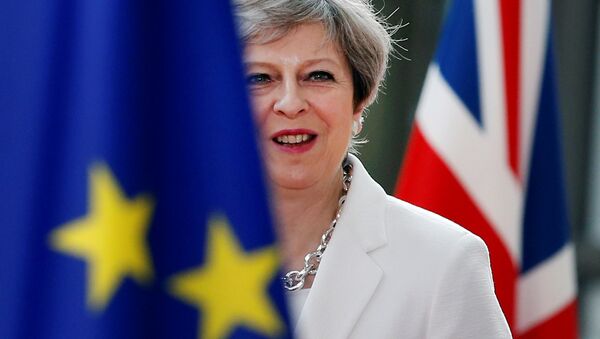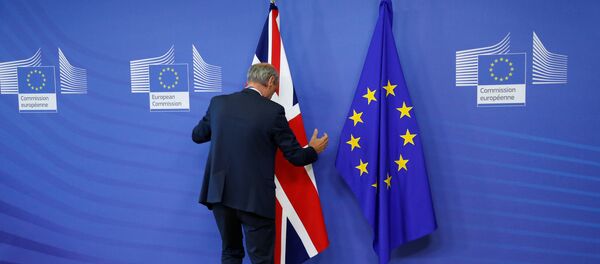Embattled UK Prime Minister Theresa May has vowed that she is "in this for the long term" and will lead the Conservative Party to another election, despite speculation that she is going to face a leadership bid.
Having lost her party's majority in the House of Commons in a bruising snap election last June, May was asked if she still wants to fight the next election, and replied "yes."
"I'm in this for the long term because there's a long-term challenge for the United Kingdom," she told journalists during a three-day visit to Japan this week.
"We need to get the Brexit deal right, deliver the right deal for the people of the UK but we also need to ensure that after we have left the European Union, global Britain is out there trading around the world, standing tall in the world — and that we deal with some of the remaining injustices at home."
May's statement is an attempt to maximize her chances of staying in the post as long as possible, Mark Garnett, senior lecturer at Lancaster University and author of the book "From Anger to Apathy: The British Experience," told Radio Sputnik.
"In some ways, this is quite a clever move. She's a seriously weakened figure, that no-one in her own party currently has the appetite to remove. So really, if she wants to chart a course for herself, to maximize her chances of being a long-term Prime Minister, then this kind of defiant statement is quite good tactics."
However, at the present time there is no obvious successor to Mrs. May, and her political position is so challenging that few Conservative MP's want to take over at this point.
"You might as well have somebody in charge of the party who is almost like a sacrificial lamb, who will go through this difficult time as a leader but then will be replaced as soon as the party is ready for a successor," Garnett said.
However, her failure to win the snap general election, seemingly with everything stacked in her favor, has "proven on the record now that Mrs. May is not good at general elections and parties in Britain do not want such people in charge when elections come along."
"When she says she will lead the party into the next general election, immediately all thoughts go towards the last general election and that is the reason why her remarks are over-optimistic one might say, on her own behalf."
The toughest challenge facing May are the Brexit negotiations with the EU. The UK and EU held the third round of exit talks in Brussels this week, but major differences remain between the two sides regarding the so-called "divorce bill" that the UK is expected to pay, as well as future access to the single market and citizens' rights.
"Her chances rest very much on a successful Brexit outcome, and she's actually made it more difficult for Britain by this ill-starred election. The truth of the matter is that Britain's always going to have a difficult time in the Brexit negotiations, what's unfolding at the moment is really quite predictable."
"The Conservative Party's fortunes are tied to Brexit to a certain extent and the short-term fortunes of the party, therefore, look very uncertain and Mrs. May might as well carry the uncertainty for what's about to unfold."



